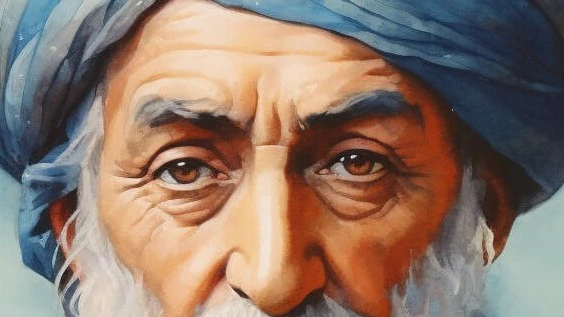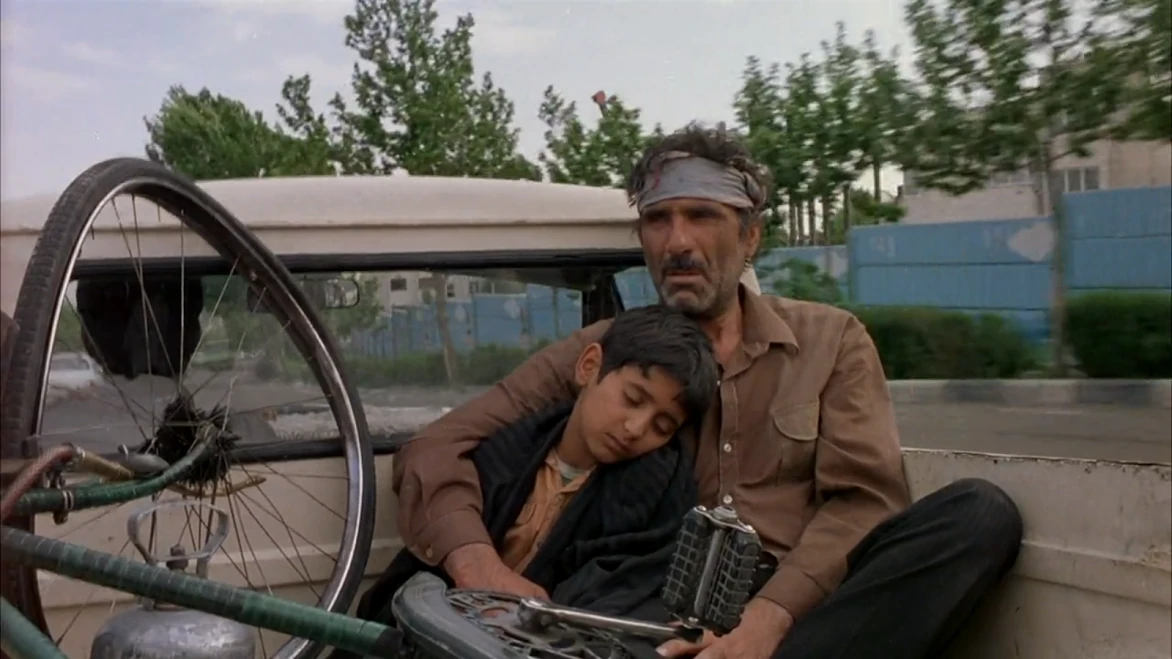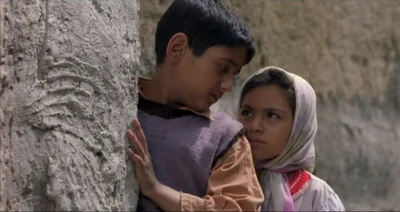بچههای آسمان
Children of Heaven (1997)
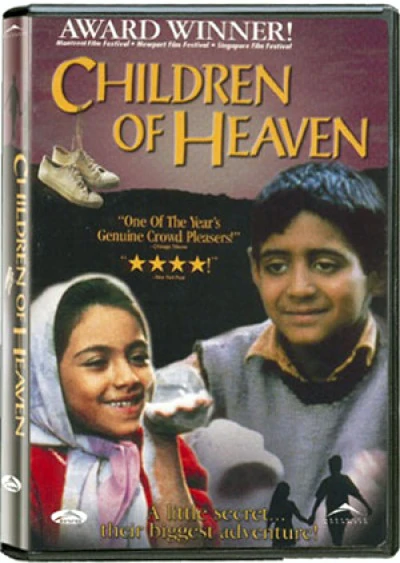
I’ve been watching Iranian films in every spare moment that I could find this last week. The reason being that it’s a logical geopolitical step to move from Shi’a Southern Lebanon, as seen in the last posts, to the Iranian Big Daddy; but also because - you can call me a conspiracy theorist, but I’ll just say that I’ve lived long enough to see a few things - something in my water is telling me that Mr. Benjamin Netanyahu, as he becomes ever more desperate to survive and stay out of prison, will soon try to play the Haman card. Jewish readers, observant or otherwise, should know who I’m talking about, but I’d better explain to those who have no idea. Sunset on this Saturday (March 23rd 2024, to be precise) marks the beginning of Purim, one of the more interesting Jewish holidays, but one which is not especially well known among Gentiles. You can read all about it by following the preceding link, or by reading this accompanying post, where I’ll go into a little more detail.
In a nutshell, the holiday commemorates the thwarting of a plot to exterminate the Jews in Persia, hatched by Haman, a jealous viceroy of the Persian emperor. It’s all narrated in the Book of Esther. It’s not the longest book in the Bible, so it certainly won’t take any great effort to read the story. I don’t intend to talk any more about the story beyond this paragraph. All I need to do here is to make the obvious comment that the idea of the preemptive strike against Haman the bogeyman has been replaced in the contemporary discourse of the Israeli right by the current Iranian Supreme Bogeyman Ali Khamenei. Let’s not pretend for a second that the need for a bogeyman is not entirely mutual. What would become of the Supreme Leader if he didn’t have the State of Israel (sorry, the Zionist Entity), led by a guy like Bibi Netanyahu, to concentrate the minds of those who follow him? As Joe Biden’s Hug Bibi strategy very visibly loosens, we’re now watching the Ali Bibi Khamenyahu Show (very sorry for that “gag” 🤮😷). As long as there’s a lovely regime in Teheran that stridently refuses to accept the case that the Jewish people have a history that has a place in the Modern World, a regime which explores the darkest recesses of outright Holocaust denial, notoriously courting the likes of David Irving, Bibi has exactly what he needs to persuade enough of his people of the need for the paranoia and the brutality that we’re seeing. But hold on - here’s an interesting statistic, which I heard recently on a podcast. You can listen to it here (or wherever you get your podcasts). While public opinion surveys are essentially impossible to conduct in Iran, as in any authoritarian society, one of the experts consulted on that linked podcast opined that little more than 20% of the population of Iran now supports the regime of the Ayatollahs, and that while the rest of the Muslim World has clearly over the last few months been at a level of rage against Israel which is off the charts and through the roof, Iran is rather the exception. Simple stuff - the enemy of the enemy. For the vast majoority of the ordinary people of Iran there is only one enemy right now that matters, and any enemy of that enemy is logically their friend. This being the Middle East, you know 🤷
In my relatively limited experience, the ordinary Iranians that I’ve met were lovely people, and when I think of them I forget about the shitty geopolitics, and only think about how their lives have been ruined over four and a half decades by an obviously malign and hypocritical regime, and the reason why I’m writing this post for Purim is to make sure that all concerned remember those people, not their torturers and murderers. And that - very intentionally repeating myself - is why I’ve been watching Iranian films all week.
Iranian cinema is one of the most remarkable.phenomena in the Modern World. I’m in danger here of making this blog into something which it definitely is not trying to be, but let’s pretend for a few minutes that this is a film blog…… If we’re going to go there, it’s a given that Iranian cinema was deeply influenced by Italian neorealism in the 1960s, and then something strange happened. While the rest of the world moved on and tried out new cinematic fads and trends, this intentionally naive realistic style became the living breathing identity of Iranian cinema, an identity which somehow survived the upheavals of the Islamic Revolution. What distinguishes Iranian cinema is the apparent total lack of artifice, I’m not saying that it’s governed by a set of rules, like Lars Von Trier’s Dogma movement. There are tricks to deconstructing artifice, and indeed the ending of another film on this week’s watchlist, A Taste of Cherry, seems to be playing an intellectual game, at the very end of the film, of rereconstructing the artifice that we thought had been taken down, but that’s for another post, and for sure I need to think a bit more before I understand that ending.
The film that I’m writing about here, Children of Heaven, is a rare exception among the dozen-plus Iranian films that I’ve watched, in that it does actually have a musical soundtrack. Most of them don’t and that’s of course one of the very un-Hollywood tropes. You can hear the music from the film in one of the two film clips that I’m including in this post. I’m using clips because frankly I can’t find a good trailer on YouTube. If you follow the link above to the IMDB page for the film, you can see a TERRIBLE trailer intended for the American market, which made this film feel like a cheesy Disney movie🤮 And since the film is really a LONG way from that, the best antidote seemed to be simply to show clips of two fairly important sequences in the film which I did find on YouTube. The first is certainly important, because everything else that happens in the film is directly caused by the events that unfold there.
Very simple. Ali and his little sister Zahra are kids who live with their parents in a working class suburb on the outskirts of Teheran. One day, Ali has taken Zahra’s shoes to be repaired, and as you can see in the film clip, he loses them, not through any particular carelessness but purely bad luck. The rest of the film is just about Ali and Zahra sharing a pair of shoes to go to school. Girls and boys being at school at different times, this is just about possible, but it does cause them both a bit of stress, as you’ll see when you hopefully do watch the movie. Here’s Ali, below, with pretty much the typical face that we see on him throughout the movie whenever he’s stressed out by this situation.
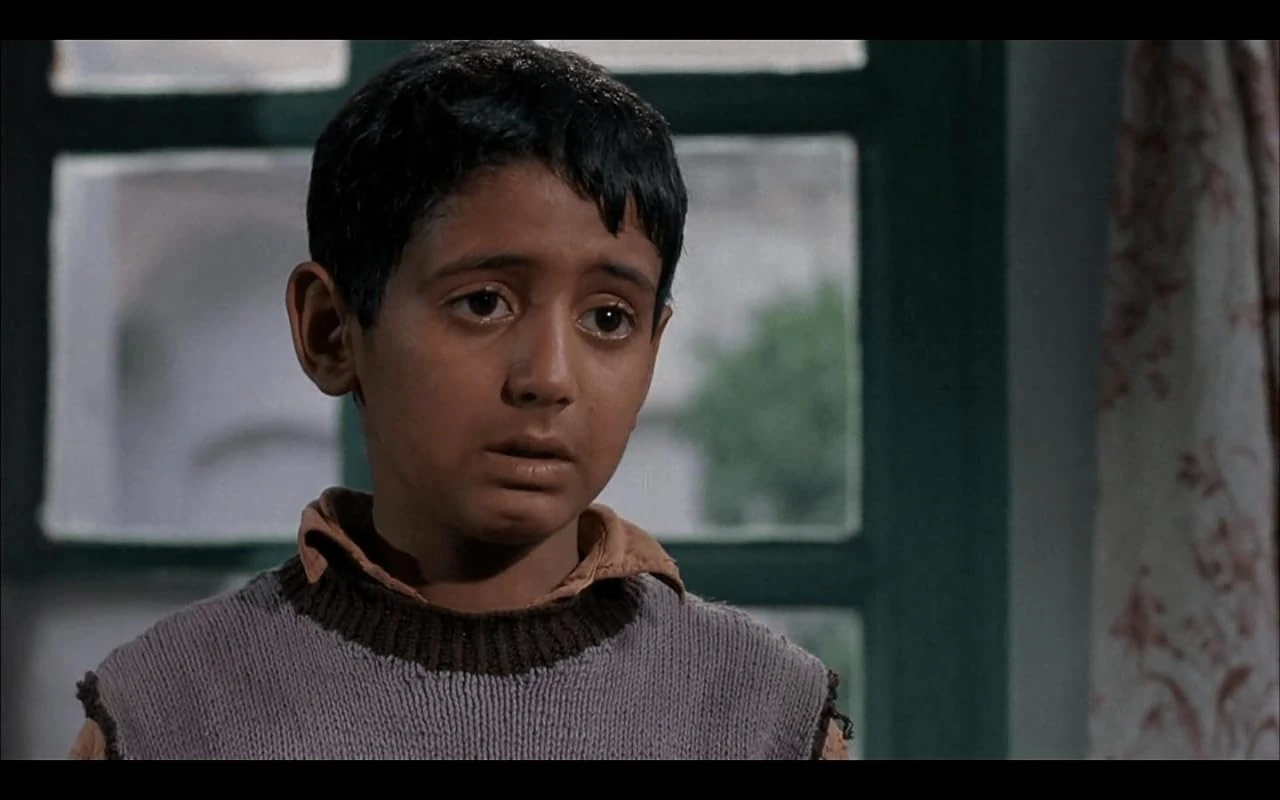
I can only wonder at the level of skill and trust that needs to emanate from a director and his team to get such extraordinarily convincing performances from child actors. There’s one scene where both Ali and Zahra are crying together. It’s so natural that you forget how incredibly difficult it would be to get two children to do that on camera without an amazing ability to communicate the needs of the scene.
Here’s another scene, in which Zahra loses one of the shoes that she’s borrowed from Ali. Of course the shoes are far too big for her, so this was bound to happen at some point. Now that I’m stepping back from the pretence that I’ve got any understanding of film technique that explains the effect of this scene upon me, I’m only going to say that this scene is just SO DAMNED CUTE, WOW.
There’s also no point giving a load of spoilers about the rest of the film. Of course it’s not only about the shoes, but that’s pretty much the fulcrum of things. If you want to know whether or not Ali manages to resolve the problem without watching the film (first tell me what the point of that would be, however) you can certainly read all the spoilers on the Wikipedia page about the movie. But why do that?
Nothing else to say. Beautiful film. Easily one of the most beautiful out of all the films that I’ve watched on this project. The simplicity of the action and the music very much reminded me of some of the work of Takeshi Kitano, who is far and away my favourite Japanese director. There’s one film of his in particular, Kikujiro, which kept coming into my head while watching this one. This is the only film that I’ve seen so far by this particular director, Majid Majidi, but I’ll definitely look out for more of his work. He’s on the list as one of the major names of Iranian New Wave cinema, but I suppose that maybe his name just isn’t quite as big outside Iran as the likes of Mohsen Makhmalbaf or Abbas Kiarostami.
There are quite a few unpleasant images in our minds about Iran, and sadly that’s entirely justified by the politics of the place, but let’s keep on remembering to separate long-suffering Iranians, such as the lovely characters in this film, from the awful regime that they live under. And now I have to finish writing about a film with a story which is sadly a lot less beautiful than this one.
Addendum!!!! All the talk about Purim and Ramadan….. I completely missed the fact that it’s also Nowruz. I got sooooo obsessed with Purim, and thankfully it does look like Purim has passed without at least an escalation in the madness, so all I need to say is: نوروز مبارک Brought to you by Google. Hopefully that’s the correct phrase. It looks about right.
